People
| People | Brief Bio | Contact |
|---|---|---|
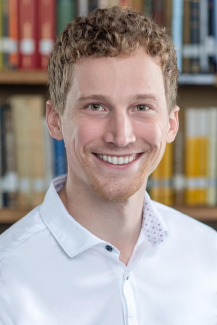 CTQM Role(s):
CTQM Role(s):
Research Area(s):
|
Chris AkersAffiliations
BioI am interested in combining quantum mechanics and gravity, especially by thinking about quantum mechanical aspects of black holes and the AdS/CFT correspondence (our best theory of quantum gravity so far). To this end, I often use the tools of quantum information theory and quantum computation, and I am interested in expanding these connections. How can quantum computers be used to help the study of quantum gravity? In what ways does quantum gravitational physics affect the theory of computation? |
Email: chris.akers@colorado.edu |
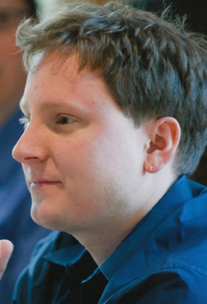 CTQM Role(s):
CTQM Role(s):
Research Area(s):
|
Oliver DeWolfeAffiliations
BioI am interested in string theory and supergravity, their applications to other phenomena via holography, particle physics, cosmology and quantum field theory. String theory is a leading candidate for a theory of quantum gravity, and also provides a framework for the unification of the forces of nature. It has both "direct" applications, by which one can investigate questions about the evolution of the early Universe, the nature of the dark energy and its connection to symmetry breaking, and the spectrum of subatomic particles and forces; as well as "indirect" applications, where through the concept of holography and the AdS/CFT correspondence one can study descriptions of strongly coupled phenomena, including nuclear and condensed matter systems. However, not everything is yet understood about the nature of the theory. I am interested in studying the characteristics of string theory, its predictions for the quantum nature of space and time, and both direct applications (particle physics, supersymmetry breaking, the cosmological constant, dynamics in the early Universe) and indirect applications (dual descriptions of heavy ion and strongly correlated systems). |
Website: http://spot.colorado.edu/~dewolfe/ Email: oliver.dewolfe@colorado.edu Phone: 303-492-3272 (office) Phone: 303-492-5119 (fax) |
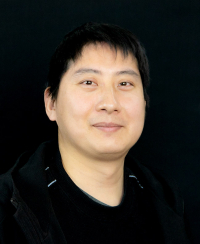 CTQM Role(s):
CTQM Role(s):
Research Area(s):
|
Xun GaoAffiliations
BioMy research interests lie in finding quantum computational advantages, especially for solving practical problems. Examples include the power & limitations of near-term quantum devices, quantum machine learning and quantum optimization algorithms. I would also like to explore quantum error correction and quantum-inspired approaches to design classical algorithms. |
Email: xun.gao@colorado.edu |
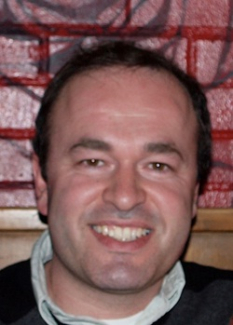 CTQM Role(s):
CTQM Role(s):
Research Area(s):
|
Victor GurarieAffiliations
BioI am interested in emergent phenomena in condensed matter and many body physics, when the behavior of many-body systems cannot be reduced to a sum of their constituent parts. Common methods used in my work are the nonperturbative techniques of many-body theory and quantum field theory. My work has applications within the new field of the ultracold atomic gases, in the more conventional condensed matter physics, as well as to the mathematical aspects of quantum field theory. |
Email: victor.gurarie@colorado.edu Phone: 303-735-5898 (office) |
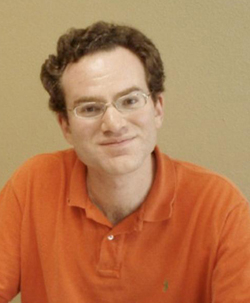 CTQM Role(s):
CTQM Role(s):
Research Area(s):
|
Michael HermeleAffiliations
BioMichael Hermele is a theoretical physicist interested in quantum phases of matter, strongly correlated systems, and other aspects and areas of quantum many-body systems. His background is in condensed matter physics, and much of his recent work also draws on ideas from quantum information science, high-energy physics, and mathematical physics. More specific current interests include topological and fracton phases of matter, and solid state materials with strong spin-orbit coupling and substantial electron interactions. He is the Deputy Director of the Simons Collaboration on Ultra-Quantum Matter. |
Website: http://spot.colorado.edu/~hermele Email: michael.hermele@colorado.edu Phone: 303-492-7466 (office) Phone: 303-492-3352 (fax) |
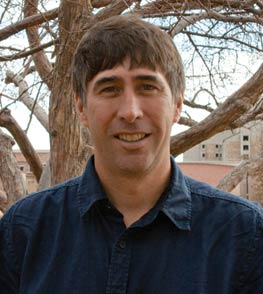 CTQM Role(s):
CTQM Role(s):
Research Area(s):
|
Murray HollandAffiliations
BioMy research involves theoretical studies of Bose-Einstein condensation, including (1) the modes of oscillation, (2) the quantitative effect of interactions and loss processes, (3) the behavior of a condensate undergoing evaporative cooling, and (4) the thermodynamics of a small number of atoms. My future research interests include the damping processes of coherent excitations, quantum diffusion of the condensate phase, and new methods for treating quantum kinetic theory. I also investigate quantum optics, in which I study the properties of laser fields and their interaction with matter. My other interests include optical cavities and their interaction with atomic beams and quantum measurement theory. |
Website: http://jila.colorado.edu/holland Email: mholland@jila.colorado.edu Phone: 303-492-4172 (office) |
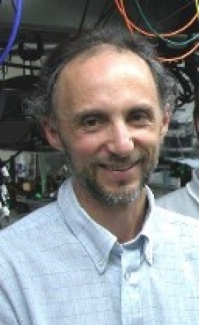 CTQM Role(s):
CTQM Role(s):
Research Area(s):
|
Emanuel KnillAffiliations
BioMy research includes developing and applying mathematical and physical tools to better understand the limitations and utilize the capabilities of information processing resources. I use ideas and results from discrete mathematics, linear and multilinear algebra, information theory, probability theory, the theory of computation, and mathematical/theoretical physics. Current areas of interest include high-significance tests of quantum mechanics, characterization and benchmarks for digital and analog quantum devices, quantum measurement theory, emergence of subsystems in quantum matter and fields, and algebraic quantum information. Most of my work is available at arXiv.org. |
Website: http://www.eskimo.com/~knill/ Email: knill@boulder.nist.gov |
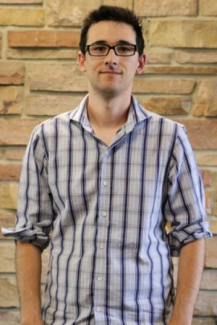 CTQM Role(s):
CTQM Role(s):
Research Area(s):
|
Andrew LucasAffiliations
BioI have worked on a variety of topics at the interface of condensed matter, high energy and mathematical physics. Recent interests include: bounds and constraints on transport and quantum information scrambling, the emergence of hydrodynamics in closed quantum systems (especially fluids of electrons in metals), and the AdS/CFT correspondence. |
Website: https://sites.google.com/colorado.edu/andrew-lucas/ Email: Andrew.J.Lucas@Colorado.EDU |
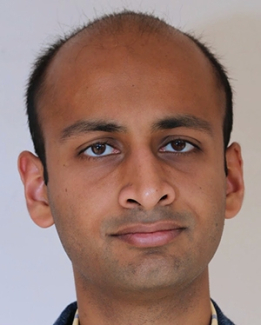 CTQM Role(s):
CTQM Role(s):
Research Area(s):
|
Rahul NandkishoreAffiliations
BioComplex many-body systems can display qualitatively new physics. The search for such emergent phenomena is a central goal of condensed matter physics. My research is focused on the search for new emergent phenomena in quantum many body systems with strong interactions and/or strong randomness. I work on systems both in and out of equilbrium. Particular topics of interest include (but are not limited to): non-equilibrium quantum statistical mechanics, many body localization and thermalization, field theory of correlated systems, Dirac fermions, unconventional superconductors, and the interplay of disorder and interactions. Selected Publications1. Non-local Adiabatic Response of a Localized System to Local Manipulations, V. Khemani, R. Nandkishore and S.L. Sondhi, Nature Physics 11, 560-565 (2015) 2. Rare region effects dominate weakly disordered 3D Dirac points, R. Nandkishore, D.A. Huse and S.L. Sondhi, Phys. Rev. B 89, 245110 (2014) 3. Localization Protected Quantum Order, D.A. Huse, R. Nandkishore, A. Pal, V. Oganesyan and S.L. Sondhi, Phys. Rev. B 88, 014206 (2013) 3. Chiral superconductivity from repulsive interactions in doped graphene. R. Nandkishore, L.S. Levitov and A.V. Chubukov, Nature Physics. 8, 158-163 (2012) |
Website: https://sites.google.com/a/colorado.edu/rahul-nandkishore-webpage/ Email: Rahul.Nandkishore@Colorado.EDU Phone: 303-492-5404 |
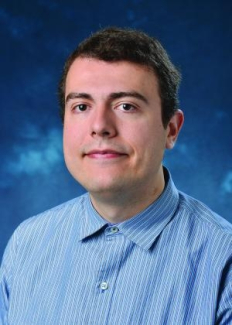 CTQM Role(s):
CTQM Role(s):
Research Area(s):
|
Ethan NeilAffiliations
BioMy research interests are in physics beyond the standard model, particularly its signatures in collider and dark matter experiments, and more generally in the physics of strongly-coupled elementary particles, which I study numerically using large-scale computing. In closer |
Email: ethan.neil@colorado.edu Phone: (303) 492-0513 |
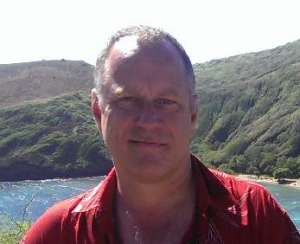 CTQM Role(s):
CTQM Role(s):
Research Area(s):
|
Markus PflaumAffiliations
|
Website: http://euclid.colorado.edu/~pflaum/ Email: markus.pflaum@colorado.edu Phone: 303-492-7717 |
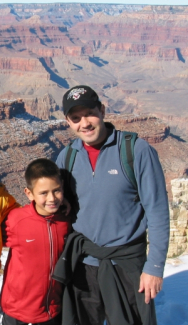 CTQM Role(s):
CTQM Role(s):
Research Area(s):
|
Leo RadzihovskyAffiliations
BioMy research interests are:
For more details, please see my Physics Department homepage. |
Website: http://spot.colorado.edu/~radzihov/ Email: radzihov@colorado.edu Phone: 303-492-5436 (office) Phone: 303-492-2998 (fax) |
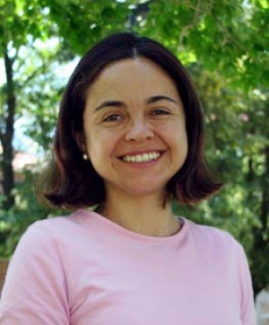 CTQM Role(s):
CTQM Role(s):
Research Area(s):
|
Ana Maria ReyAffiliations
BioMy main research interest is ultracold atoms and molecules loaded in optical lattices, which are periodic trapping potentials created by illuminating the atoms and molecules with laser beams. Atoms in optical lattices are analogous to electrons in solid state crystals. Their big advantage is that these "artificial crystals of light" are perfectly clean and highly controllable. Therefore, they are ideal for exploring a whole range of fundamental phenomena that are extremely difficult — or impossible — to study in traditional condensed matter systems. My goal is to study how to control and manipulate these systems to engineer different quantum phases such as superfluids, insulators, quantum magnets, and topological matter. I plan to use them for understanding the physics of strongly correlated bosonic and fermionic systems and nonequilibrium phenomena. Additionally, I am interested in studying how to generate and manipulate entanglement in quantum systems for use in quantum information processing and precision measurements. |
Website: https://jila.colorado.edu/arey Email: arey@jilau1.colorado.edu Phone: 303-492-8089 (office) |
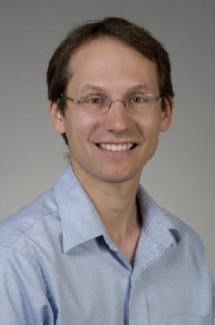 CTQM Role(s):
CTQM Role(s):
Research Area(s):
|
Paul RomatschkeAffiliations
BioI am currently an assistant professor in the Physics Department of the University of Colorado, Boulder. My research interests include: Cold Dense Matter, Relativistic Viscous Hydrodynamics, Non-Abelian Plasma Instabilities, and Nonlinear Gravity. For more on these areas, please see my Physics Department homepage. |
Website: http://hep.itp.tuwien.ac.at/~paulrom/ Email: paul.romatschke@colorado.edu Phone: 303-492-1578 (office) Phone: 303-492-3352 (fax) |
